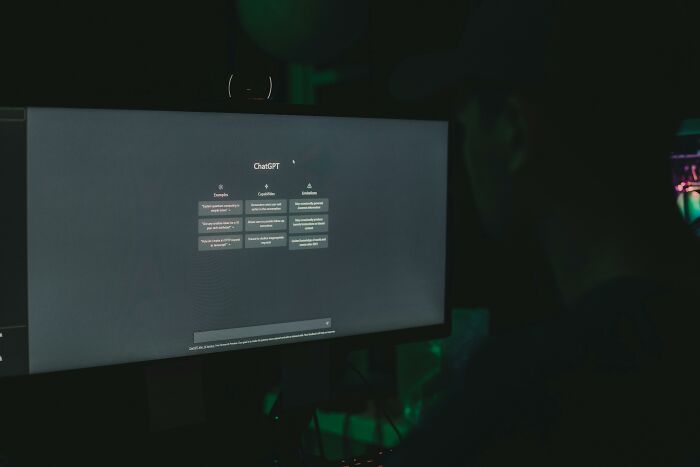DEIR AL-BALAH, Gaza Strip (AP) — The U.N. agency for Palestinian refugees dismissed a number of its employees in Gaza who were suspected of participating in the attack by Hamas and other militants on southern Israel on October 7, according to the agency’s director on Friday. This led to the United States, the agency’s top donor, temporarily halting its funding. The agency, known as UNRWA, has been the primary provider of aid for Gaza’s population amidst the humanitarian crisis caused by Israel’s offensive against Hamas triggered by the attack on October 7. UNRWA officials did not provide any comments on the potential impact of the U.S. funding halt on its operations.UNRWA chief Philippe Lazzarini stated that the agency terminated contracts with “several” employees and initiated an investigation after Israel provided information suggesting their involvement in the attack. The U.S. State Department mentioned that there were allegations against 12 employees. UNRWA has a staff of 13,000 in Gaza, the majority of whom are Palestinians, with roles ranging from school teachers to medical professionals and aid workers.
In his statement, Lazzarini called the allegations “shocking” and asserted that any employee “involved in acts of terror will be held accountable, including through criminal prosecution.”
He did not specify the alleged roles of the staffers in the attacks. During the unprecedented surprise attack, Hamas fighters breached the security fence around Gaza and infiltrated nearby Israeli communities, resulting in approximately 1,200 fatalities, mostly civilians, and the abduction of around 250 individuals. Other militants also participated in the rampage.
“UNRWA reiterates its condemnation in the strongest possible terms of the abhorrent attacks of 7 October” and calls for the immediate and unconditional release of all Israeli hostages, Lazzarini said. Since the beginning of the war, Israel’s assault has led to the deaths of more than 26,000 Palestinians, with the majority being women and children, and over 64,400 others have been injured, as per Gaza’s Health Ministry. The ministry’s death toll does not differentiate between combatants and civilians. Over 150 UNWRA employees are among the casualties, the highest toll suffered by the world body in a conflict, and a number of U.N. shelters have been hit in the bombardment.More than 1.7 million of Gaza’s 2.3 million people have been displaced by the war, with hundreds of thousands of them being accommodated in schools and other shelters run by UNRWA.
Israel’s near-total blockade of Gaza has left the entire population heavily reliant on a limited amount of international aid that can enter the territory each day. U.N. officials have stated that around a quarter of the population is now facing the threat of starvation. The U.S. State Department expressed deep concern over the allegations against the UNRWA staffers and has temporarily suspended additional funding for the agency. The U.S. is the agency’s primary donor, providing $340 million in 2022 and several hundred million in 2023.Stéphane Dujarric, spokesman of U.N. Secretary-General António Guterres, announced that an “urgent and comprehensive” independent review of the agency would be conducted. UNRWA was established to provide assistance to millions of Palestinians across the Middle East whose families were displaced or forced from their homes during the 1948 war surrounding Israel’s creation. Israel opposes the return of the refugees to their former lands.Israeli officials and their allies, including in the U.S. Congress, frequently claim that UNRWA permits anti-Israeli incitement in its numerous schools and that some of its staff collaborate with Hamas. The Trump administration halted funding to the agency in 2018, but President Joe Biden restored it.
Supporters of the agency argue that the allegations are intended to downplay the long-standing refugee issue. Last week, Lazzarini announced the appointment of an independent entity to investigate the claims, both “what is true or untrue” and “what is politically motivated.” He also stated that the accusations were adversely affecting the agency’s already strained operations.Thousands of Palestinians fled the southern Gaza city of Khan Younis on Friday as the fighting between Hamas militants and Israeli forces escalated. Families were observed traveling on foot down roads, carrying their belongings, as smoke filled the skies above them. Additionally, the Israeli military instructed residents of three Khan Younis neighborhoods and the refugee camp to evacuate to a coastal area. The military noted that its troops were engaged in close urban combat with Hamas fighters around the city.The Khan Younis camp, like others in Gaza, was initially established by Palestinians who fled or were expelled from their homes during the 1948 war and has since developed into an urbanized district. The leader of Hamas in Gaza, Yehya Sinwar, and the commander of the group’s military wing, Mohammed Deif, both grew up in the Khan Younis refugee camp.In central Gaza, the primary focus of Israel’s ongoing offensive, Israeli airstrikes on the Nuseirat urban refugee camp resulted in the deaths of at least 15 people, including a 5-month-old baby, according to a journalist with The Associated Press at the hospital where the casualties were taken.
The intense fighting coincided with the International Court of Justice ordering Israel to take all necessary steps to prevent fatalities, destruction, and any acts of genocide in Gaza. However, the court refrained from instructing Israel to cease the military offensive. South Africa has accused Israel of genocide in its offensive, and the court dismissed Israel’s request to dismiss the case. Aid organizations have encountered challenges in delivering food, medicine, and other supplies to northern Gaza, which was initially targeted by Israel’s ground invasion and is now largely under its control. Uday Samir, a 23-year-old native of Gaza City, stated that basic foods such as flour, lentils, and rice are now extremely scarce across the city.“Now, what is available is animal feed,” said Samir. “We grind it and bake it.”All supplies enter Gaza from the south, either through the Egyptian-controlled Rafah border crossing or Israel’s Kerem Shalom crossing. Aid groups have revealed that fighting and Israeli restrictions have made deliveries to the north difficult. When convoys do travel north, supplies are often seized by hungry Palestinians before reaching their intended destination.
___Jeffery reported from London.___Find more of AP’s coverage at










